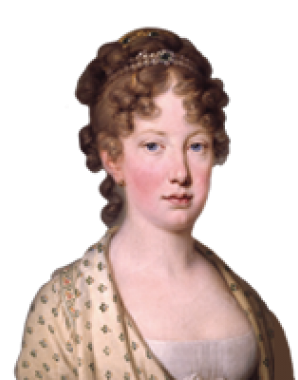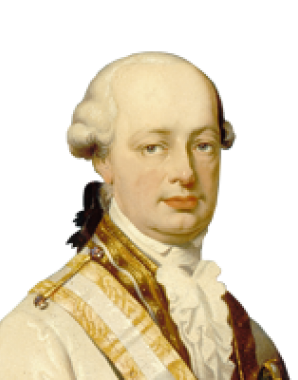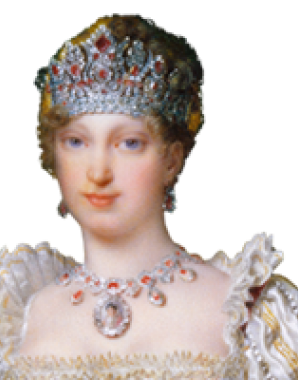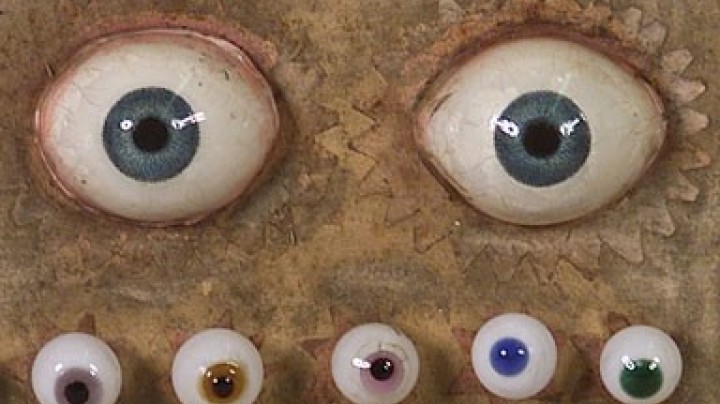Leopoldine: Sunday’s child
Archduchess Leopoldine was an exceptional child who did not at all fit the standard ideas of what a princess should be: she was much more interested in mineralogy and intellectual pursuits than in the common preoccupation with outward appearances of society life.
The educational principles of Leopold II.After making a thorough study of the child’s character, one must begin by trying to educate it in accordance with its own tendencies, but it is most important to gain the child's trust, to encourage it to be honest and open, and to instil in it a revulsion for lying, duplicity, deceit and gossip. One must teach it the only passion which it must have, a passion for humanity, for compassion and for the desire to make the people happy.
Leopoldine Josepha Carolina was born on Sunday, 22 January 1797. She was the fifth child of Emperor Franz II (I) and Maria Theresa of Naples and Sicily. She was raised in accordance with the educational principles laid down by her grandfather, Emperor Leopold II. Out of these grew the principles that she wrote as a handwriting exercise at the age of nine: ‘Unterdrücke die Armen nicht. Sey mildtätig. Murre nicht über die Schickung Gottes, sondern bessere deine Sitten. Ernstlich müssen wir uns bestreben gut zu seyn.’ (‘Do not oppress the poor. Be charitable. Do not complain about what God has given you, but improve your habits. We must strive earnestly to be good.’)
Her elementary education followed the normal educational programme for daughters of the house of Habsburg: lessons in French, Latin, drawing, piano, riding and shooting. Leopoldine’s mother, Maria Theresa, was a soprano who sang masses by Joseph Haydn, and Leopoldine met Johann Wolfgang von Goethe when she was in Carlsbad with her stepmother, Maria Ludovica, in 1810 and 1812. Leopoldine was especially interested in the natural sciences, and was particularly enthusiastic about botany and, above all, mineralogy.
The tropics, which were at the time the subject of much scientific research, particularly attracted her, but in her home city of Vienna her only contact with foreign lands was through the menagerie and botanical collections at Schönbrunn. It is appealing to imagine that as a child, Leopoldine’s first impressions of the fantastic magical world of the tropics were gained here in the Bergl Rooms at Schönbrunn Palace.
The formation of her character was guided by the educational principles of the Habsburgs: discipline, piety and a sense of duty.
In addition to this, three particular events had a marked effect on the character development of Leopoldine: In April 1807 her mother, Maria Theresa, died. Nine months later Emperor Franz took Maria Ludovica d’ Este as his third wife. This ‘beloved second mother’ became Leopoldine’s spiritual mother in the best possible sense. Then, after losing the war against Napoleon (Battle of Wagram, July 1809), Emperor Franz I agreed to the marriage between Marie Louise, Leopoldine’s sister, and ‘the archenemy of the Habsburgs’, Napoleon Bonaparte. The fact that her father had been willing to accept the ‘monster Napoleon’ as his son-in-law upset Leopoldine deeply.
















